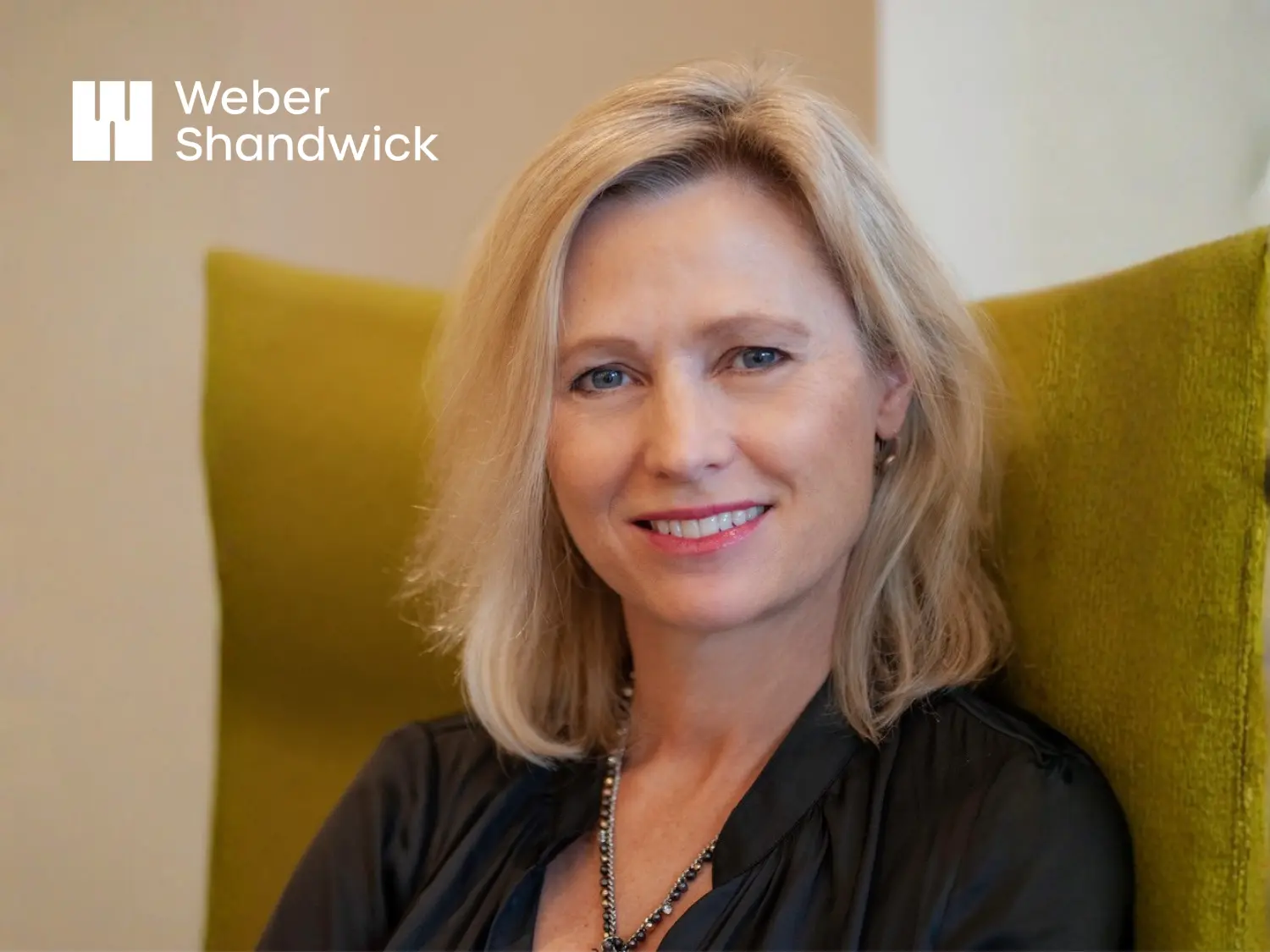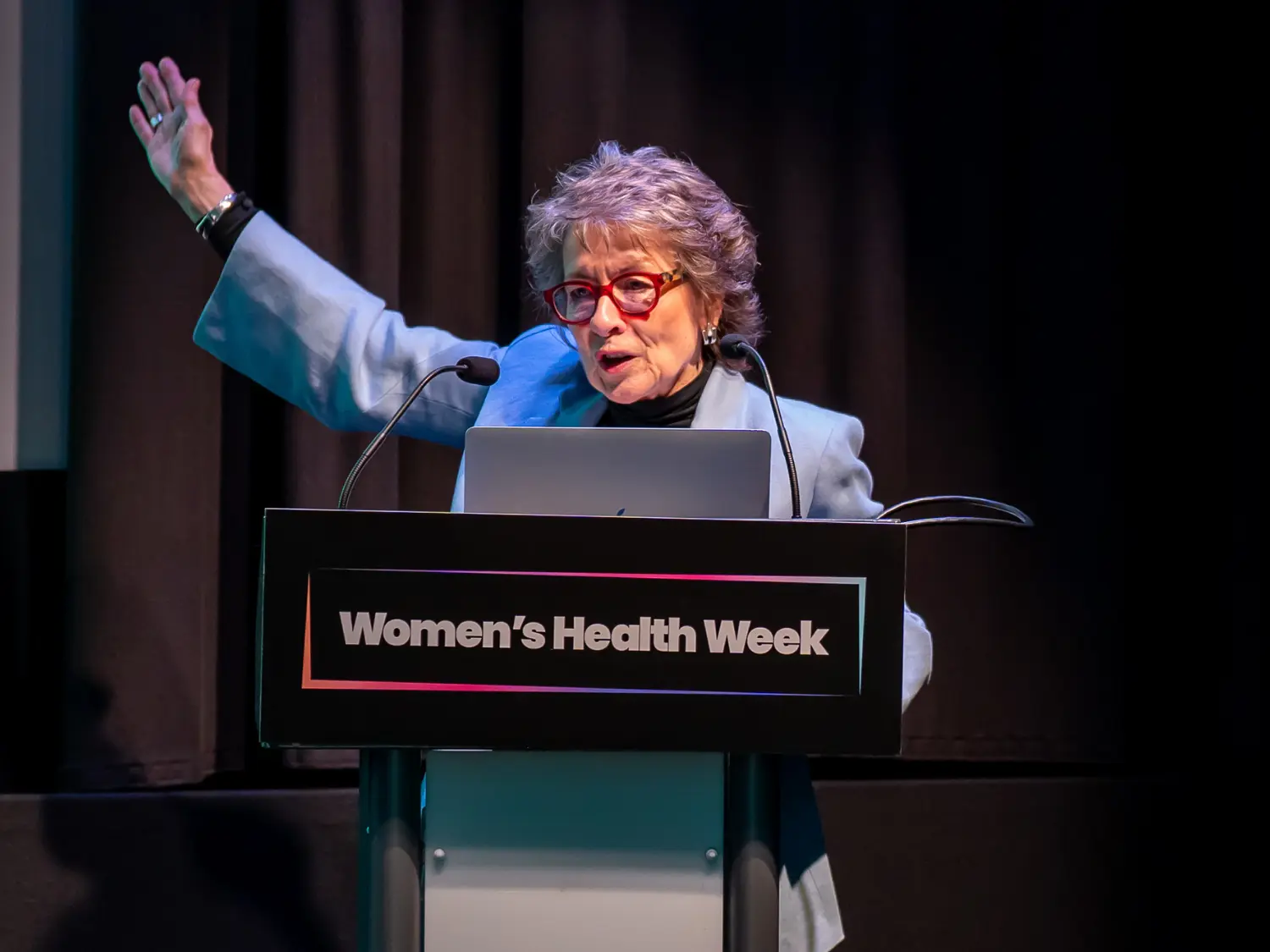Women’s Health Week Europe 2025: Where Partnerships Happen
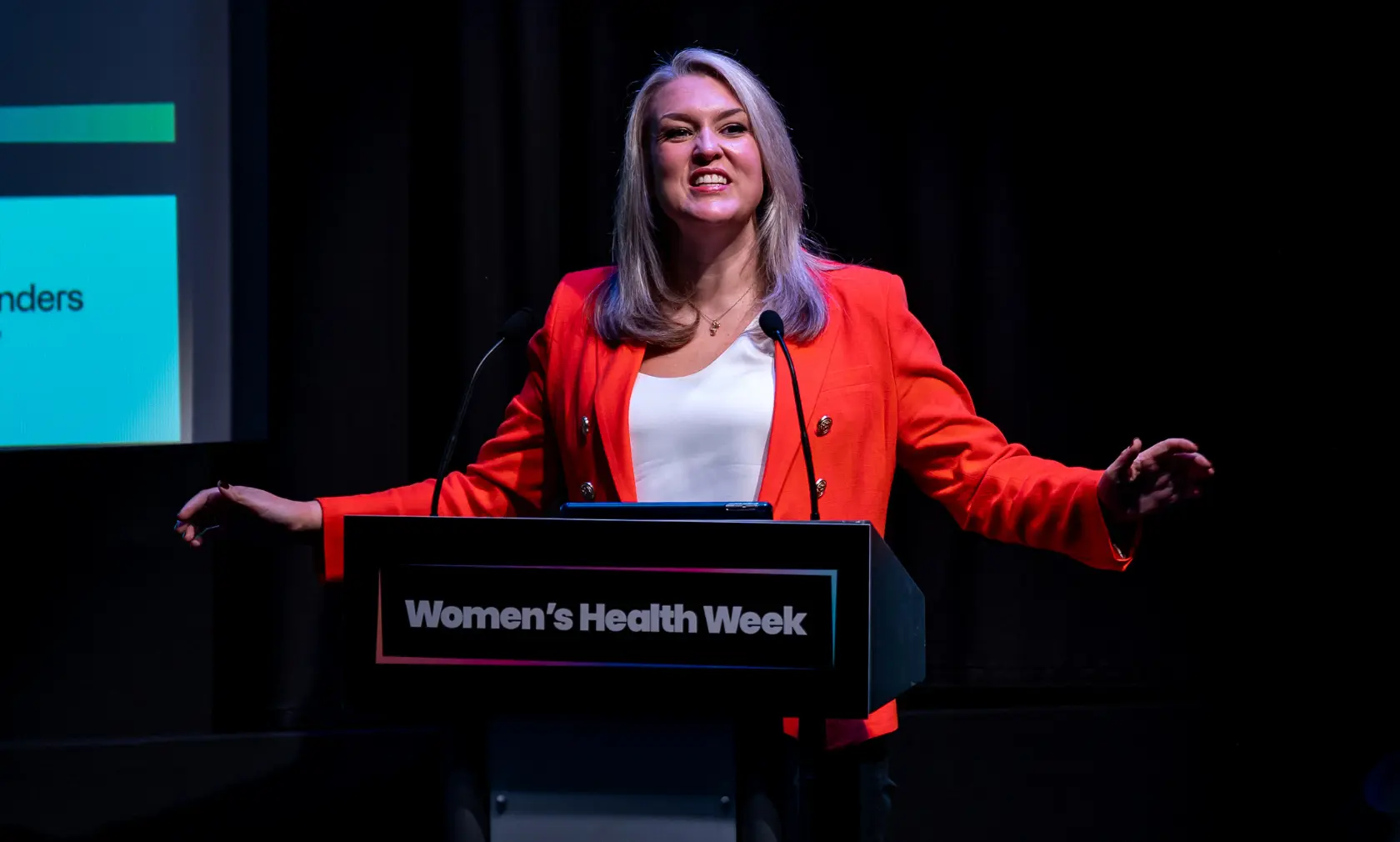
If you walked into the Barbican last week, you could feel it — women’s health is moving from underserved segment to unstoppable global priority.
Women’s Health Week Europe 2025 marked a turning point for the movement. Over three packed days in London, more than 500 innovators, investors, clinicians, policymakers, and corporate leaders came together to do what WHW was built to do: scale through partnership.
It’s hard to believe this was technically the first edition of WHW Europe. Two years ago, our journey began under the name SiS Women’s Health - Solve, Impact, Scale - a forum laser-focused on the commercial success of women’s-health start-ups. As those early founders scaled, the demand for a broader, global platform grew.
Enter: Women’s Health Week - the gathering designed to elevate women’s health from a cause to an investable category. Our ethos has stayed the same: if it isn’t moving the industry forward, we won’t be discussing it.
Across the agenda - from AI to access, retail to regulation, and seed funding to strategic exits - one theme united every conversation: partnerships as the catalyst for progress. The meeting tables told their own story; by mid-morning on day one they were fully booked. Deals were starting, collaborations forming, and future press releases practically writing themselves.
As founder, Nathan Edwards, said in his closing remarks:
“Where partnerships happen might appear to be a typical tagline for an event, but for us, it’s our core metric for success.”
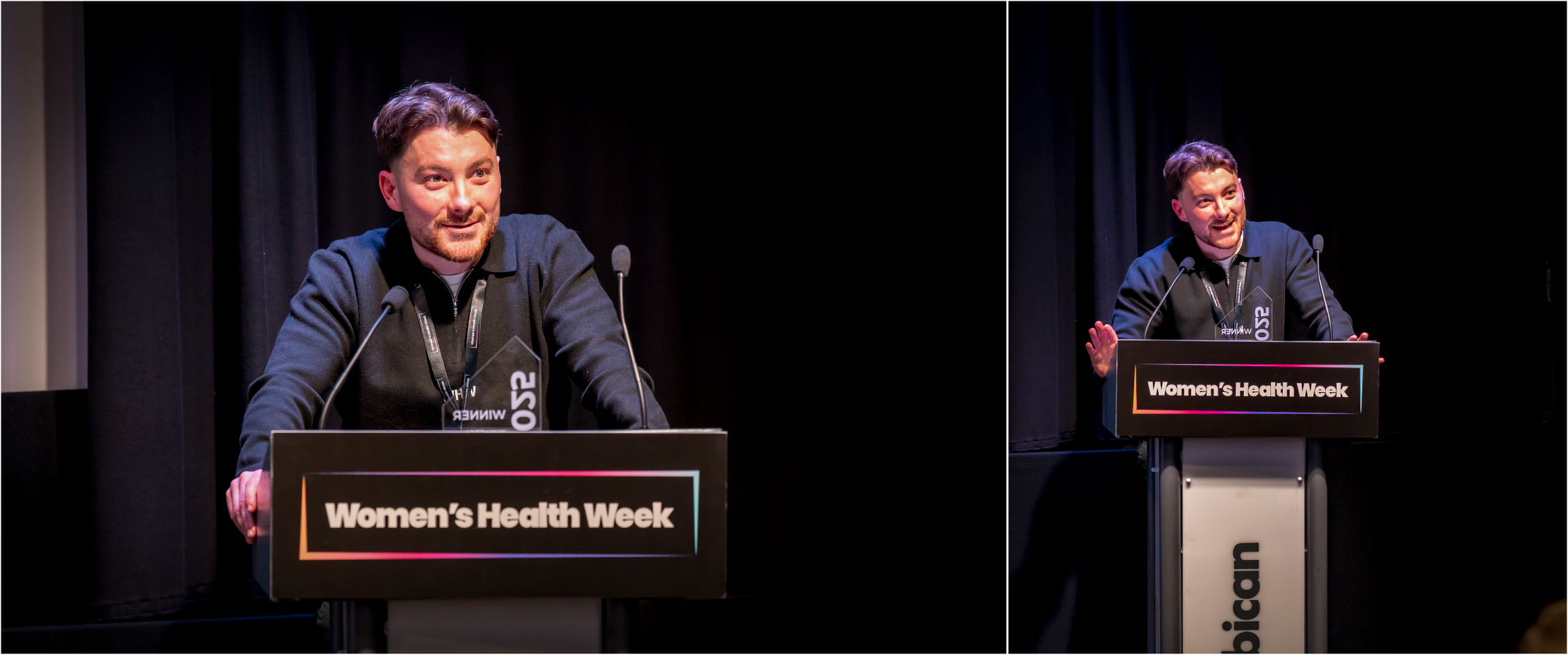
Setting the tone: keynotes that framed the week
The main stage opened with a trio of voices that set the ambition high - commercial success, collective responsibility, and cultural change.
Sara Davies MBE, entrepreneur and Dragon’s Den investor, kicked off proceedings with the raw honesty of someone who’s been on both sides of the pitch. She reminded founders that investors don’t just buy ideas - they buy into people. “Address the negatives head-on,” she said, “and build an advisory team that accelerates, not just admires.” Her message of flexibility and control resonated with every early-stage founder in the room. Sara ended by saying “Everyone you need to build a successful business is already in the room - go and talk to them.”
From the world of sport, Charlotte O’Neill, Managing Director of Manchester City Women FC, showed what inclusive partnerships can achieve in practice. The club’s collaboration with snuggs sold 17,000 pairs of period underwear in just three months - proof that when purpose meets performance, commercial traction follows. In Charlotte's own words: “Get involved now. Build your brand equity. Build those relationships in women’s sport so that you’re right at the heart of it.”
And finally, Professor Dame Lesley Regan DBE MD DSc FRCOG, England’s Women’s Health Ambassador, delivered a powerful call for every nation to adopt a dedicated women’s-health strategy.
She shared sobering statistics - from unplanned pregnancies and maternal mortality disparities to the under-diagnosis of cardiovascular disease - and stressed that the key to progress is collaboration. “Women live longer than men,” she noted, “but too often in poorer health. Investing in women’s health is better for women, better for everyone, and better for less money.”
Professor Dame Lesley Regan closed the keynote trio in conversation with Judith Tielen, the Dutch Minister for Youth, Prevention and Sport. Together they delivered a powerful message that national leadership is essential to lasting progress in women’s health.
Their discussion contrasted two health systems - the UK’s “bright yellow front door” initiative to help innovations navigate NHS red tape, and the Netherlands’ €275 million strategy to improve women’s health research - but landed on the same truth: collaboration across borders, ministries, and sectors is the only way forward.

Founders Day: building from the ground up
Before the main stage lights came on, Founders Day gave early-stage innovators a chance to roll up their sleeves. The new format — practical workshops and small-group mentoring — was designed to deliver tangible outcomes before the conference even began.
Daye’s Valentina Milanova was characteristically candid about the realities of starting up. “For the first few years I funded by myself using credit cards - which I highly advise you do not do,” she said to knowing laughter. Grants, she argued, are the best starting point, though not the easiest: as Innovate UK’s Janice Sanon and the NHS Innovation Accelerator’s Mindy Simon reminded the room, “grant” doesn’t mean “free money.” Cash often arrives in arrears, creating operational strain. Milanova pointed to EU programmes like the EIC Accelerator as founder-friendly alternatives, offering flexible funding and partial up-front payments.
The mood was equal parts realism and resolve. Early-stage founders still face funding gaps and bias, but the conversation has matured - women’s-health ventures are increasingly judged by performance, not tokenism.
Capital, scale and the new investment reality
Across the week, investors made one thing clear: outperformance is changing perceptions.
In the Unlocking Europe’s Investment Power discussion, Sajni Chotai of the British Business Bank revealed that several fund managers now cite women’s-health portfolios as their top performers. LPs are beginning to request dedicated vehicles - a notable shift from just a year ago. Donna Parr (Cross Border Impact Ventures) highlighted shorter regulatory timelines and faster commercialisation cycles as tailwinds for Series B and C investment, while Triin Linamagi (Sie Ventures) showcased nine-times returns across her early healthcare syndicate.
The consensus: performance, not philanthropy, is now the driving force. And yet, as Thang Vo-Ta put it succinctly, “We don’t just need capital. We need courageous capital.”
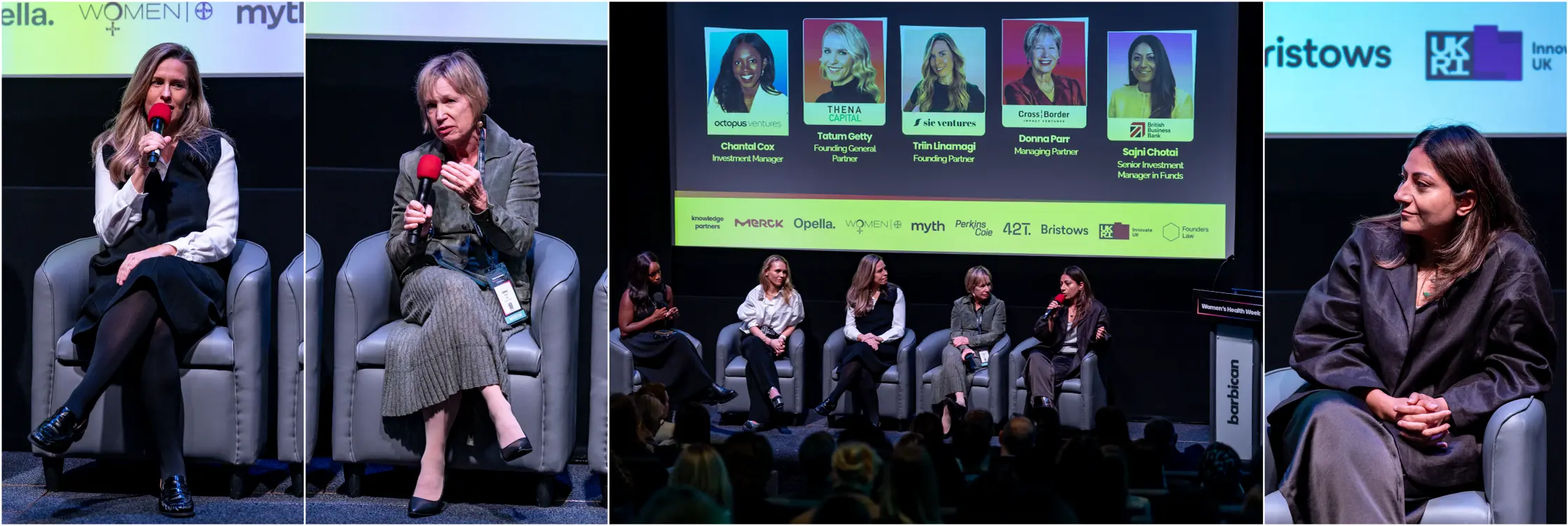
Evidence, access and consumer trust
Trust emerged as the conference’s most persistent theme - whether between patient and platform, regulator and innovator, or brand and buyer.
In Cutting Through the Noise, Dr Helen O’Neill (Hertility) and Burcak Simsek (Bayer) reminded attendees that evidence cannot come later. Credibility starts in research and design, not after launch. Education, they argued, is as much a product feature as any algorithm. Bayer’s Anything but Normal campaign stood out for tackling stigma with empathy and impact.
In Maximising Access, Emeline Hahn (Fizimed) described the painstaking two-year journey to secure reimbursement in Germany - and why it was worth every form and meeting. The panel’s wider message: scalability depends on access, and access depends on trust. Proving ROI through outcomes data is now as essential as the product itself.
Technology, data and the power of insight
Wearables, AI, and real-world data dominated the tech agenda — but the conversation was refreshingly grounded in ethics and inclusion.
Sarah Montgomery-Taylor (Google Health) coined the line that echoed throughout the halls: “Powered by, not blindly led by AI.” Bias remains the biggest risk - and inclusion the only solution. Dr Chen Mao Davies (Anya) reinforced the need for technology that reflects the diversity of women’s lived experiences.
In Closing the Research Gap, Chris Curry (ŌURA) explained how longitudinal, at-home monitoring is unlocking new physiological insights. Rhiannon White (Clue) and Micah Sivitz Gellman (Gates Foundation) emphasised that the future of research lies in multi-metric, real-world data - turning the everyday into clinical evidence.

Regulation, policy and systemic change
Navigating Europe’s regulatory maze was another hot topic. Licence to Launch offered a clear playbook: engage regulators early, document everything, and bring in independent expertise to manage MDR and AI Act requirements. The reward for getting it right is faster approval - without compromising ethics or safety.
Meanwhile, the Health Equity session reminded everyone why regulation and reimbursement matter: they determine who actually benefits. Moderator Tola Sunmonu Balogun advised the audience to “See women’s health as a continuum — across many life stages, not just around reproduction.”. Lina Chan summed it up simply - “women are more than baby-makers.” Equity isn’t an add-on; it’s a design principle.
What we’re taking forward
Women’s-health innovation is entering a confident new phase — one defined by measurable results and mainstream interest. The week’s key through-lines were clear:
- Capital at every stage matters. Align angels, LPs, and strategics early; compounded momentum accelerates impact.
- Evidence over hype. Design for equity from day one and measure what matters.
- Access is the ultimate KPI. Co-create with women with lived experience and prove ROI in real outcomes.
Data is destiny. Build continuous, multi-metric evidence that drives both clinical and commercial success.
The takeaway
What stood out most wasn’t just innovation - it was urgency: a shared belief that women’s health still needs louder voices, better systems, and more human care.
Because while the space may sound crowded, it’s far from saturated. There are still gaps to close, companies to build, and women who deserve better.
“Starting an impactful business in women’s health, especially as a female founder, means the odds are stacked against you,” Nathan said in closing. “And yet, defeating those odds, there are countless success stories.”
At WHW, those stories don’t end on stage - they start there. Where partnerships happen, progress follows.

